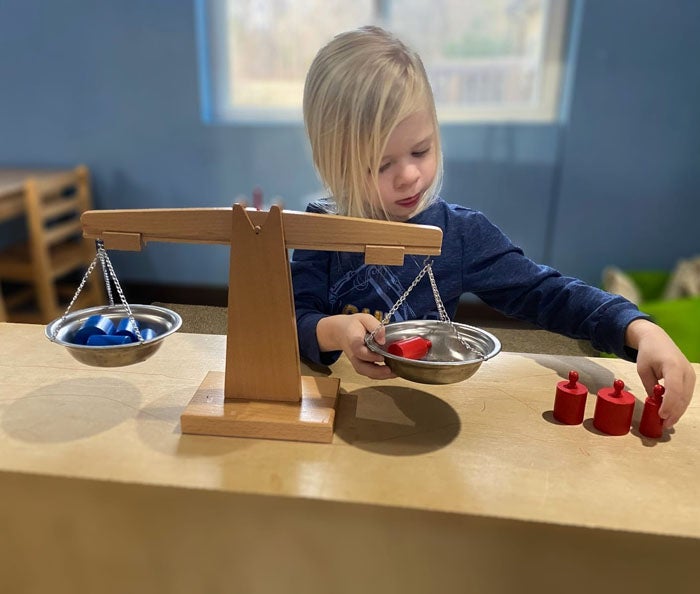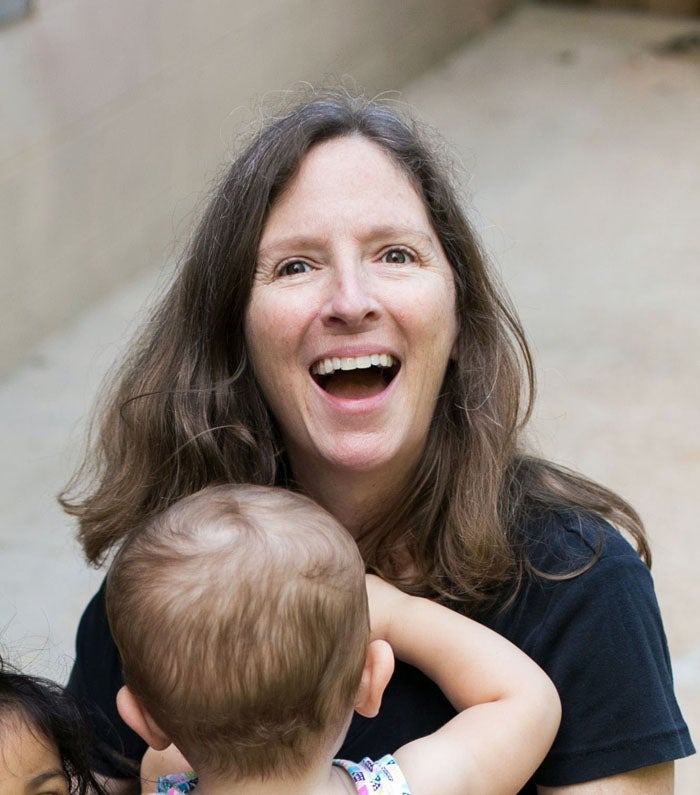Fun every day: Fifth anniversary for Yadkin Path Montessori School
Published 12:00 am Sunday, April 11, 2021
By Susan Shinn Turner
For the Salisbury Post
When Dean Hamilton and Myra Tannehill’s son arrived eight years ago, Myra began thinking almost immediately about what kind of education she wanted J.P. to have.
She was introduced to the Montessori concept when she visited her sister in Richmond. Myra’s niece was attending a Montessori school. She is now a student at Duke Divinity School.
And when Myra was teaching at Appalachian State University, she says, “I never went into a class with a syllabus. I asked my students, ‘What do you want to learn? What is relevant to you?’ Then I would create my course from what my students needed. By the time I had a syllabus, I had complete buy-in from my students.”
She later would realize a student-led format is the basis of the Montessori classroom. The only problem: there was no Montessori school in Rowan County.
“I already had a vision of how it could be. I didn’t find anything like that here,” she says.
So she and her husband set out to open a Montessori school.
The Montessori method is named for Dr. Maria Montessori, an Italian physician, educator, and innovator, who opened the first Montessori school in Rome in 1907.
This year, Yadkin Path Montessori School is celebrating its fifth anniversary. On Saturday, April 17, from 2 to 4 p.m., the public is invited to an outdoor celebration at the school, located on 2135 Bringle Ferry Road. You can register for the event by visiting the school’s Facebook page, Yadkin Path Montessori School & Childcare.
Myra and Dean visited multiple Montessori schools.
“He got it immediately,” Myra says. “He loved the independent environment. Some parents aren’t aware of how capable their children are.”
Indeed, toddlers at Yadkin Path set the table, clear the table and wash their own dishes. The older children sweep and mop. This is after a designated work period in the morning and before outside play in the afternoon.
“If they take something off the shelf in the classroom, they put it back the way it’s supposed to be,” Myra says. “Dean liked the self-sufficiency and the self-reliance in the Montessori model. He’s that kind of person.”
The two looked at 40 properties before purchasing the former Camp Kiwanis.
“It already had an awesome kid vibe,” Myra says.
They built a 5,000- square-foot building, and did a lot of the work themselves. The 9-acre property features a pond and a big meadow. The children spend a lot of time outdoors, a blessing during the pandemic that caused the school not to miss a beat. Each student has his or her own mud boots, and parents find out quickly not to send their children wearing their best clothes.
What Myra appreciates most about the Montessori environment is its minimalism.
“We don’t want a lot of distractions,” Myra says. “We want children to be able to concentrate.”
The Montessori model is child-led, she explains. “We don’t necessarily follow a curriculum. You follow the child. The teacher observes and gets to know what each child is like, and begins to populate the classroom with materials for the children in her care. Classrooms are a home-like environment. They are beautiful and inviting.”
Teachers are called guides. In every classroom, the guide gets to know each student.
“The guide asks, what is this child passionate about? What is this child naturally learning?” Myra says.
The classroom is then set up according to student interests. You’ll see lots of blocks, simple puzzles, wood toys and treasures from nature such as seashells and pine cones. Each student is encouraged to work independently, and at his or her own pace.
“We teach students about botany and zoology,” Myra notes. “We teach them exact, precise names for things. So you may have a student come up to you and say, ‘This is a steam locomotive.’ ‘This is a monarch.’ ‘This is an Appaloosa.’ ”
Students might focus on butterflies or trains or construction equipment or dinosaurs. Toddlers learn to care for baby dolls, because many of them have younger siblings.
“The boys and the girls love to do that,” Myra says. “They love to wash things.”
She continues, “They pour their own milk or water. It’s not a big deal if they make a mess. They learn to clean it up. When they come inside, we have a big lesson on what to do when you are a muddy, muddy mess. They love to change clothes.”
Myra, who calls herself “an outdoors girl,” adores taking children into the natural environment.
“Children learn so much by being in nature,” she says. “All of their senses are engaged. Being outside is an amazing, rich learning environment. You really learn reverence for creation. If you’re holding a caterpillar or earthworm, you can’t squish it. You have to be gentle.”
Five years in, with 40 students and 14 staff, Myra is proud of her accomplishments at Yadkin Path.
“I wanted it,” she says. “I wanted it for Rowan County, and I wanted it for J.P. I wanted it for all of us.”
J.P. now attends a Montessori school in Clemmons, not far from the family’s farm in Woodleaf.
“He needs his own space,” his mom says.
The school will add an elementary classroom this fall, with two first-graders and two fifth-graders. That’s in addition to the infant environment, two toddler communities and the children’s house (typically ages 3-6). Myra points out, however, that children move classrooms by readiness, not age.
“I love seeing how a Montessori school in Rowan County has affected others schools and daycare centers,” Myra says. “I can see how it has rippled out, and it makes me very happy. I’m so excited about children having a more nurturing environment. When our children go into new schools, they love to learn, and they have over-the-top social skills. They’re just doing really great when they go into a new environment. They know how to adjust.”
She adds of her role at Yadkin Path, “It’s fun every day.”






